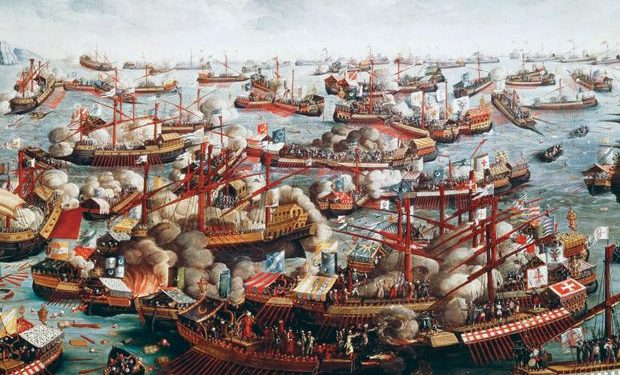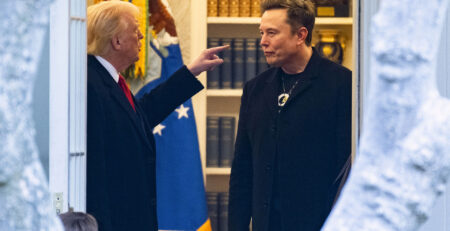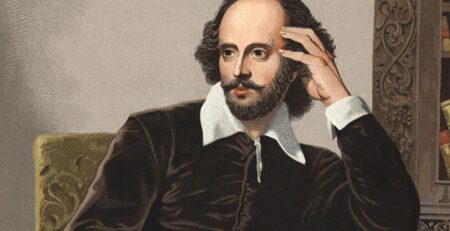200 χρόνια από το 1821: Η προδοσία από τους Ρώσους. Οι νεο-οθωμανικές προοπτικές του Ερντογάν.
Η έναρξη της Ελληνικής Επανάστασης του 1821 ξεκίνησε τη διάλυση της Οθωμανικής Αυτοκρατορίας και τη γέννηση της σύγχρονης Τουρκίας, που ιδρύθηκε από τον Κεμάλ Ατατούρκ και καθορίστηκε από τις Συμφωνίες της Λωζάνης του 1923, αναφέρει σε άρθρο του στο AsiaNews.It o Νίκος Τζωΐτης.

Ο αρθρογράφος εξετάζει την στάση της τσαρικής Ρωσίας έναντι των επαναστατημένων Ελλήνων και στην εξέξερση των αδελφών Ορλόφ το 1770. Μέσα από αυτούς, η Ρωσική Αυτοκρατορία προσπάθησε, αναφέρει , να υποκινήσει τον ελληνικό πληθυσμό, στοιχηματίζοντας στην ιστορική του επιθυμία να απελευθερωθεί από τον οθωμανικό ζυγό”. Ωστόσο , υποστηρίζει ότι ήταν “μια κίνηση που έχει σχεδιαστεί κυρίως για τον έλεγχο των εμπορικών οδών στη νοτιοανατολική Μεσόγειο”.
Οι φιλοδοξίες των Ελλήνων για ελευθερία δέχτηκαν πλήγμα , μετά τη Συνθήκη του Küçük Kaynarca μεταξύ των Ρώσων και των Οθωμανών (1774), η οποία άφησε τους Έλληνες στο έλεος της Οθωμανικής οργής και τις επακόλουθες σφαγές , σημειώνει .
Αφού αναφέρεται στην Κεμαλική Τουρκία , η οποία είχε την στήριξει των Μπολσεβίκων , ο Τζωΐτης έρχεται στην σημερινή Τουρκία και, μεταξύ άλλων , επισημαίνει: “Ξεκίνησε ( ο Ερντογάν) υποσχόμενος δημοκρατική ανάπτυξη, αλλά αφού έγινε πρόεδρος, άρχισε να ενεργεί σαν σουλτάνος και χαλίφης. Χάρη στην παραδοσιακή στάση της Τουρκίας για ουδετερότητα στις διεθνείς σχέσεις, προωθεί την Τουρκία ως το κορυφαίο επίτευγμα του νεο-οθωμανικού ονείρου. Εγκαθιδρύει ένα ισλαμικό φασιστικό καθεστώς, το οποίο έχει ως πρώτο θύμα την ανάπτυξη της δημοκρατικής συνείδησης του τουρκικού λαού σε όλες τις εκφράσεις του. Κατάφερε να το κάνει αυτό λόγω της ανοχής των μεγάλων δυνάμεων”.
*Το άρθρο γράφτηκε στα ιταλικά. Πιό κάτω δημοσιεύουμε την αγγλική μετάφραση του από το AsiaNews.It
The Greek Revolution, which began the dissolution of the Ottoman Empire, was characterised by a reference to religion. For this reason, the then Ecumenical Patriarch Gregory V was killed, as was his defender Haci Halil, Grand Imam of Constantinople. The betrayal by the Russians. Erdoğan’s neo-Ottoman prospects.
It should be noted that centuries earlier, the Ottomans took advantage of the collapse of the Byzantine State, the social and political divisions of the new Balkan states and the political opportunism of the Western powers to conquer Asia Minor and the Balkans in a very short period of time.
Christianity and freedom
The independence process involved all Greeks, both in the territories occupied by the Ottoman Empire, and the Greeks living in territories controlled by the great powers. Greeks held a sense of nationhood as a shared homeland and were looking for a state to govern themselves, outside the despotism of the Ottoman Empire, from which they considered themselves culturally different.
It should be remembered that in the Ottoman Empire ethnicity and religion were superimposed. Therefore the population was divided into Muslims, Christians and Jews. Ethnic Muslims, of Mongolian origin, ruled the empire, led by the despotic figure of the sultan, who was also caliph. The power of the sultan and caliph was absolute, based on a certain interpretation of Qur’anic precepts.
The other groups, particularly Christians and Jews, were subjects at the mercy of the sultan and caliph, and a source of wealth for the empire since they were heavily taxed in the name of Islam.
Out of political opportunism, the “infidels” were granted communal autonomy in matters of family, inheritance and education. As a result, the Patriarchate of Constantinople ruled over the Christian population; the Chief Rabbi did the same for Jews (especially after the arrival of Sephardic Jews, victims of Spanish persecution).
The Patriarch of Constantinople was accountable for all Orthodox Christians to the sultan and caliph for all the issues concerning Christians and their activity in the Ottoman Empire.
Ecumenical Patriarch Gregory V was accused by the Sultan of being responsible for the rebellion by Peloponnesian Greeks who started the War of Independence. For this reason, he was hanged.
The execution sparked protests by the great Sheikh ul-Islam of Constantinople, Grand Imam Haci Halil, the highest Muslim authority, who refused to approve the massacre of Christians. He too was condemned to be hanged by Sultan Mahmud II himself. As we would say today, political motives and religion make a strange mix.
According to historical studies, the proclamation of the Greek War of Independence gave rise to the romantic movement of Philo-Hellenism across Europe. The Greek War of Independence, with the motto “Freedom or death”, and with the insurgents taking their oath on the Gospel, was considered in Christian Europe a response to the widespread atheism produced by the French Enlightenment, which was giving rise to the birth of nations in Europe, resulting in the slow dissolution of the great empires, united in the Holy Alliance against Napoleonic upheavals.
The link between religion and politics, the Gospel and the nation were bound to last. The drafting of the first three Greek constitutions, in 1822, 1823 and 1827, as acts of foundation of the State, declared fidelity to democratic processes and proclaimed that Jesus Christ, Saviour of the world, as the reference.
This conception of democracy is part of the Byzantine tradition that was characterised by the osmosis of Greek philosophical thought with Christian doctrine and developed a participatory and popular religious feeling, not bigoted or fundamentalist, expression of the synodal tradition.
The Russian Game
Dostoyevsky himself invited his countrymen to imitate the Greeks. Orthodox groups dominated by the despotic game of the Ottoman Empire also looked to the Russian Orthodox Empire as their liberator.
But then came the events of 1770, the Orlov Revolt, named after the Orlov brothers. Through them, the Russian Empire tried to incite the Greek population, betting on their historical desire to free themselves from the Ottoman game, a move mainly designed to take control of the trade routes in the south-eastern Mediterranean.
The Greeks’ aspirations for freedom were disappointed after the Treaty of Küçük Kaynarca between the Russians and the Ottomans (1774), which left the Greeks at the mercy of Ottoman fury, and subsequent massacres.
Despite the usual internal Greek diatribes due to their disposition, the start of the Greek Revolution set in motion the dissolution of the Ottoman Empire, and the birth of modern Turkey, founded by Kemal Atatürk and defined by the Lausanne Agreements of 1923.
Post-Ottoman Turkey
Kemalist Turkey saw the abolition of the caliphate and the forced secularisation of social mores, but not a real democratisation of Turkish society. On the contrary, the later remains under the control of a centralised state and the military in accordance with the centralising Ottoman tradition.
As a result of the methodical purge of religious minorities and by applying its skilled Eastern policy in its international relations, Kemalist Turkey became formally neutral, taking advantage of the new great powers.
The forced imposition of a secular state and the contempt for Islamic tradition in Kemalist Turkey did not mean the rejection of Islam. We must not forget the Kemalist motto, which is “a real Turk is a Muslim”.
Still, this has led to frustration and marginalisation of the Anatolian population, which found a voice in various religious parties. President Recep Tayyip Erdoğan is the latest expression of this.
He came to power in 2002 at the helm of the Justice and Development Party (AKP), an Islamic party. He started out by promising democratic development, but after he became president, he began to act like a sultan and caliph. Thanks to Turkey’s traditional stance of neutrality in international relations, he is promoting Turkey as the crowning achievement of the Neo-Ottoman dream.
He is not interested in joining Europe, but sees Turkey as a cornerstone between North and South, East and West. As an economic power, the country controls all the legal and illegal trade routes in a large area of the Middle East and has a strong and powerful military.
At home, Erdoğan is establishing an Islamic-fascist regime, which has as its first victim the development of the democratic conscience of the Turkish people in all its expressions. He has been able to do this because of the tolerance of the big powers. But the consequences can be unpredictable: if a rope is pulled too much it can break.
*Τα ενυπόγραφα κείμενα απηχούν τις απόψεις των συγγραφέων τους




